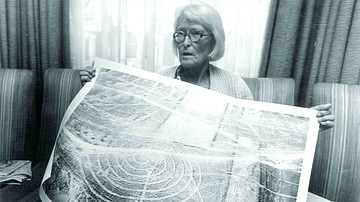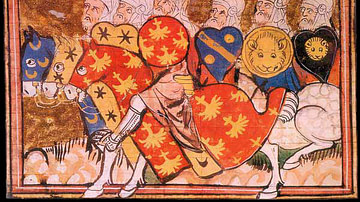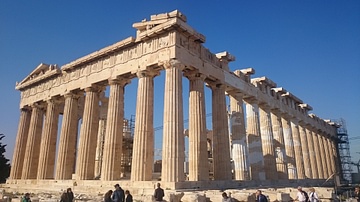Search Articles
Browse Content (p. 109)

Article
Traditional Maori Tattoo of New Zealand
Te Papa Tongawera (or simply Te Papa) is New Zealand's innovative national museum situated near the foreshore of beautiful Wellington harbour. Te Papa Tongawera means “container of treasures” in Te Reo Maori, which is the indigenous language...

Article
The Nazca Lines: A Life's Work
The World Heritage-listed Nazca lines are a well-known part of the ancient heritage of Peru. One woman spent over 50 years studying and protecting them. Ana Maria Cogorno Mendoza shares the story of Dr Maria Reiche. The lines and geoglyphs...

Article
Visiting the Spirits of Chichen Itza
Joshua J. Mark goes looking for adventure while visiting the Maya site of Chichen Itza in Mexico and finds sprites, spirits and iguanas amongst the ruins. He tells of his journey to this magical ancient site that has become a symbol of the...

Article
Exploring Western Crete's Archaeological Treasures
As the cradle of European civilization and a meeting place of diverse cultures, Crete is a magical island that stands apart in the heart of the Mediterranean sea. Its prominent place in world history dates back to the mysterious and fascinating...

Interview
Dinner with the Romans: An Interview with Farrell Monaco
The ancient Romans left behind a wealth of remains which help archaeologists and historians to understand what daily life was like in the Roman Empire. From ancient frescos of rich table spreads, to broken wine vessels, carbonized loaves...

Article
Elephants in Hellenistic History & Art
Elephants were thought of as fierce and frightful monsters in antiquity, very real though rarely seen until the Hellenistic period. They were deployed on the battlefield to strike terror into the enemy, however, since fear was considered...

Article
Cats in the Middle Ages
Cats in the Middle Ages were generally disapproved of, regarded as, at best, useful pests and, at worst, agents of Satan, owing to the medieval Church and its association of the cat with evil. Prior to the widespread acceptance of Christianity...

Article
Chester: A Time-Travelling City
It is said that Chester is the richest city in Britain in terms of archaeological and architectural treasures. One of the finest strategic outposts of the Roman Empire, it is one of the few walled cities left in Britain today. Rachael Lindsay...

Article
Saladin & the Unification of the Muslim Front: 1169-1187 CE
Saladin (c. 1137 – 1193 CE), the Muslim ruler who crushed the mighty Crusader army at the Horns of Hattin (1187 CE) and re-took Jerusalem after 88 years of Crusader control, was born in a world where the disunity of the Muslims had allowed...

Article
Greek World Heritage Sites
Greece, the 'cradle of western civilization', is home to a large number of spectacular sites from the ancient world, several of which have been placed on the UNESCO World Heritage List. These sites of great historical importance, interest...